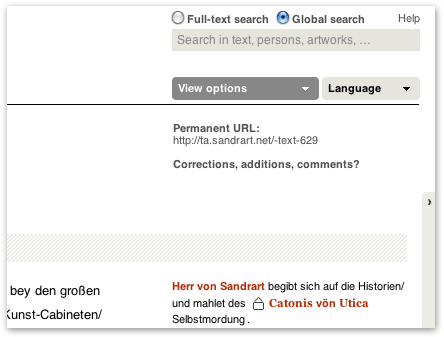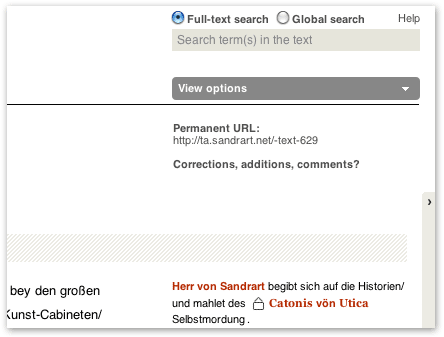Searching in the “Teutsche Academie”
Each text page of the edition contains a search field in the top right-hand corner, which will either start a search only in the text (“Full-text search”), or which will in parallel in the text and in the databases of people, places, artworks and the bibliography (“Global search”). The latter search is identical to what you will get when clicking the “Search” button in the website’s main navigation.
In either case you can enter one or more terms into the search field, enclose phrases in quotation marks and exclude undesired terms by preceding them with a minus sign (hyphen). As soon as you press the Return key to start the search, the system starts the search and you are presented the results.
By default, each of the search terms entered are also found within words: the entry eutsch would also display all occurrences of “Teutsche”. If you use more than one search criterion, the results include only those pages and/or records for which all the specified search criteria apply. On the text search result page, you can additionally change the way the matching is done in case of partial word matches.
Some examples of search queries:
- "eutsche academ" finds, for example, all pages on which “Teutsche Academie” occurs, but due to the search for a phrase (quotation marks) it does not find “Teutsche Sandrartsche Academie”.
- sandrart frankfurt displays all pages on which “Sandrart” and “Frankfurt” occur.
- urbi -orbi tracks down all pages that contain “urbi” but not “orbi”.
- sandrart frankfurt urbi -orbi "eutsche academ" would be a combination of the examples above and would display all pages on which “Sandrart”, “Frankfurt”, “urbi” and “eutsche academ” but not “orbi” can be found. (However, in practice the result would be that you establish there is no page that matches this search query.)
By the way, the search is not case-sensitive.

